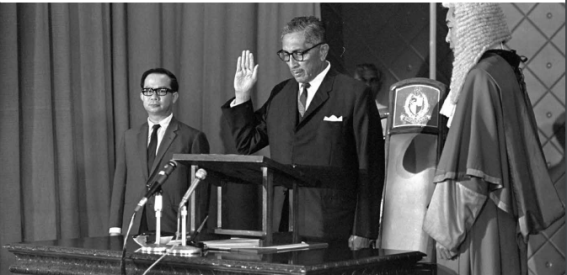“Singapore’s first President Yusof Ishak discharged his duties with dedication and dignity and stood for enduring values that underpinned Singapore’s success; meritocracy, multi-racialism, modernisation,” asserted Prime Minister Lee Hsien Loong while launching a book on Yusof’s widow Mdm Noor Aishah Mohammad Salim.
PM Lee expressed hope that Singapore’s next President would bring “as much distinction and honour to the office” as its first President.
This September, Singapore is going to elect its President from the Malay community, after amendments were made in the Constitution last year.
Recalling how Yusof became the first president of Singapore, PM Lee said, “(Founding Prime Minister) Lee Kuan Yew wanted a distinguished Malay as our first Head of State to show the Federation of Malaya that Singaporeans accepted Malays as their leaders and to forge good relations with Prime Minister Tunku Abdul Rahman of Malaya and other … Malay leaders in the Federation.”
Yusof was sworn in on December 3, 1959, and continued to be the President when Singapore gained independence in 1965. He died in office in 1970 at the age of 60. He played an important part in creating Singapore, but did not live to see its development and transformation.
The widow of the first President Mdm Noor Aishah was only 26 when she became First Lady of Singapore. She had to manage a large household and carry out official and ceremonial duties.
Speaking about the qualities of the Noor Aishah, Lee said, “She touched the lives of many with her quiet determination, humility and charm.”
The 200-page book has been titled Puan Noor Aishah: Singapore’s First Lady. It is written by legal scholar and historian Kevin YL Tan, who describes her as a “modest but remarkable woman” in his prologue.

